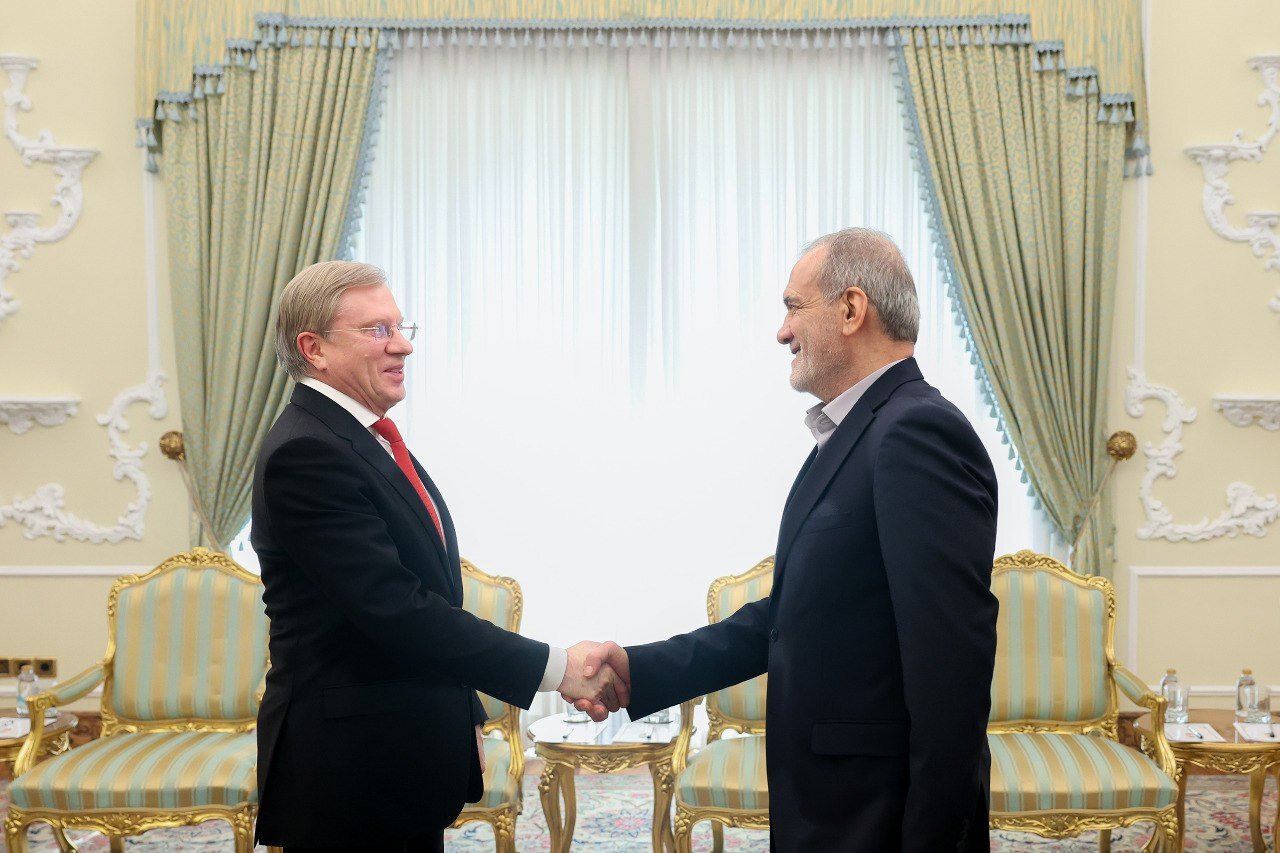Western pressure drives Iran and Russia closer
Western pressure drives Iran and Russia closer
TEHRAN – A strategic cooperation agreement is poised to deepen the partnership between Iran and Russia, a development welcomed by insiders and despised by those who hope to decouple the two challengers of Western hegemony.

A 20-year strategic agreement signed in 2001 marked the first major cooperation pact between Tehran and Moscow, establishing collaboration in areas such as industry, technology, security, energy, and nuclear energy. Extended for five years in 2020, this initial agreement is now being replaced by a new pact.
At a press conference on Monday, Iran's Foreign Ministry spokesman, Esmail Baghaei, revealed that both parties are consulting to identify the optimal time to sign the agreement. “We hope that the deal will be finalized and signed by the end of January,” he stated.
Baghaei's remarks were quickly validated when a high-ranking Russian diplomatic delegation arrived in Tehran hours later for meetings with President Masoud Pezeshkian. Word has come that the new strategic cooperation agreement between Iran and Russia will be signed during Pezeshkian’s long-anticipated visit to Moscow next year.
What’s a strategic cooperation agreement?
A strategic cooperation agreement between two countries is a high-level, long-term pact designed to foster deep and enduring collaboration across multiple areas of mutual interest. These agreements establish a framework for broad cooperation, often encompassing political, security, defense, economic, technological, cultural, energy, and educational sectors.
The most significant and widely reported strategic agreement Iran has signed recently is the 25-year Cooperation Program with China in March 2021. The deal has been described as a “cooperation road map” by former Iranian Foreign Minister Mohammad Javad Zarif who oversaw its signing. Zarif is now back as the Vice President for Strategic Affairs under Pezeshkian’s government.
The upcoming strategic cooperation agreement will be similar to the one Iran signed with China, said Mahmoud Shouri, a Russia expert and director of the Institute of Iran and Eurasia Studies. It will, however, be more expansive than the 2001 pact with Moscow.
The expert told the Tehran Times that the agreement's text is already drafted, and both countries are now focused on scheduling a signing ceremony. "The agreement will be broader in scope," he explained, "encompassing defense, security, and political aspects, while also including new areas of cooperation such as medical, customs, and novel economic fields."
Shouri said both countries have considered the changes in the regional and international landscape. "Many developments have occurred since 2001," he stated, "and Tehran and Moscow are addressing these issues in a way that benefits them both."
Western media coverage of the impending agreement with Russia is also expected to mirror the attention given to the previous agreement with China: malicious and diabolical.
"Based on this deal Iran will sell Kish Island to China,” said an anti-Iran analyst on a Western-based Persian-language TV news channel, maintaining a composed demeanor while spewing nonsense. Similar unfounded and ridiculous claims circulated on other comparable programs and channels. The details of the agreement with Beijing have yet to be disclosed.
Why does the West stand in the way of Iran’s partnerships?
According to Shoaib Bahman, an expert in international affairs and head of the Institute of Contemporary International Studies in Tehran, Western states will be concerned and provoked into launching media campaigns against any cooperative pacts involving Iran, Russia, and China.
“These countries are averse to the current existing Western-dominated world order. The West considers each a threat and naturally observes their collaboration with anxiety,” the expert remarked.
Bahman acknowledged that the forthcoming Iran-Russia cooperation agreement will come under attack by the same propaganda campaign, but he predicts it will be more fruitful than the agreement with China. He attributed the challenges with China to sanctions, which have impeded the practical implementation of many deals. "Sanctions have been a constant obstacle for collaboration between Iran and China," he noted. In contrast, he believes that Iran and Russia will have more freedom in future agreements because "Russia is already subject to extensive sanctions and won't be negatively impacted by those aimed at Iran."
Western pressure serves to strengthen Iran-Russia ties
Since the beginning of the Ukraine war and the subsequent storm of accusations against Iran for its refuted role in the conflict, Western think tanks, institutes, and media outlets have been exploring methods to drive Iran and Russia apart.
The West has tried everything—from secondary sanctions and propaganda campaigns to promoting dissent, cyber-attacks, and exploiting differences—in its ongoing attempts to separate Tehran and Moscow, and it is still exploring additional measures.
Not only have past attempts failed, but future efforts are also likely to be fruitless. The only significant shift observed between Iran and Russia is their growing closeness, fueled by a mutual desire to push back against Western dominance and pressure. During his October meeting with Pezeshkian, Russian President Vladimir Putin said ties with Iran are a “top priority”. That came after the Iranian president said Tehran will not forget the “friends that aided it during difficult days”.
source: tehrantimes.com